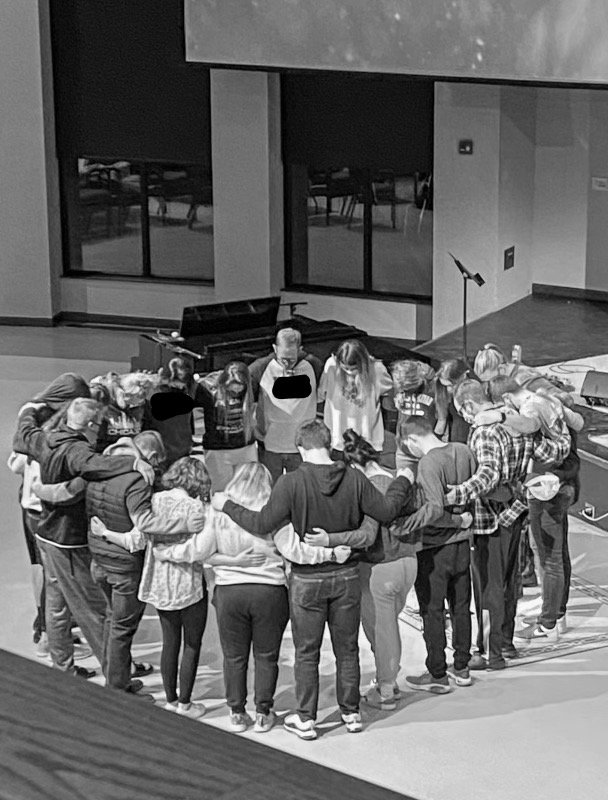“Family”
As a relatively well-adjusted wordsmith with decades of experience, very few words produce anything like a trigger response in me.
Family just about does it.
To be clear, I’m not talking about “family” in the traditional or even contemporary sense. The people we are born into and the people we find ourselves among create all kinds of families—biological and synthetic, large and small, happy and tragic—that morph and change over time. In terms of intimate social structures, the word fits. I am among the lucky ones who have had solid families over the course of my life—not without problems, for sure, but generally healthy nonetheless.
So why does the word “family” sometimes set my blood to boiling? The answer lies in the context.
I’ve spent most of my career working in some combination of churches and higher education—institutions that talk a lot about themselves as a “family.” They are hardly alone in that terminology, though. I’ve heard business from mom-and-pop local stores to global corporations describe themselves in terms of family atmosphere, family values, family friendly. And of course, if you are on the payroll, you are part of the “family.”
In rare cases, a work family can be just that.
They aren’t always wrong. Businesses and other institutions may perpetuate the idea of family for their own purposes, but there’s a tribal need inside of us that finds deep security in feeling like our coworkers are a “work family.” Look at the popularity of classic workplace series like Grey’s Anatomy, Mad Men, The Office, and Parks and Rec. We love the idea of a workplace full of quirky coworkers who may not be the best at their jobs, but are nonetheless fun and committed to the people they work with.
Like all such myths, there’s a grain of truth in the idea of work family. The vast majority of the post-grad-school friendships I’ve made have started in the workplace, and I still cherish many of those relationships today. I’ve worked in environments in which I’ve felt supported and secure, in which I would gladly sacrifice for others and believed they would do the same for me.
The problem arises, however, when we mistake the feelings of family for its reality. A family—by any healthy definition—is obligated to one another. When a family member suffers from addiction or depression, the family is patient in their treatment. When a family member struggles financially, the family provides for them. When a family member causes harm, the family works toward restoration. And all of this support cannot be merely a get-well card or a go-fund-me page. To qualify as a family, it has to be the kind of real, intentional, sustained caring that is the very definition of love in action.
Again, I’ve seen businesses and other institutions act in such a way. But—more often, sadly—I’ve seen bosses and administrators use “family” as a way to justify favoritism, unfair work hours, low pay, and a host of other inequities. When, within a matter of months, one employee with years of alcohol-related violations was lauded for his perseverance while another was fired for his first DUI, I knew the “family” that employed me was nothing of the sort. If the family isn’t obligated to all of its members, it isn’t really a family at all.
Let me be clear about something, though: I am not opposed to churches or universities or businesses. These institutional structures can be frustrating, but they are a necessary part of our social fabric. I’ve worked in those contexts for a quarter century, and likely will continue to do so until I retire.
My problem lies in calling them something they are not—especially when such terminology benefits bosses, administrators, and investors at the expense of rank-and-file employees. If the obligations aren’t mutual and proportional, it’s not a family. It’s just a job.
In recent years, more and more people are waking up to this idea. Severance, AppleTV+’s wildly popular 2022 workplace drama, asks some deep questions about how we relate to our employers. It’s brutal, but also hilarious, and well worth the watch.
Honestly, though, it makes me a little sad. Even though my work life has been much more Severance than Parks and Rec, I’d much prefer to live in the latter. It feels safer, happier, simpler. Who wouldn’t want that? Still, I’d rather know an uncomfortable truth than perpetuate a warm and fuzzy lie.
If you want to make your church or school or workplace a family, you have my full support! The world could do with more organizations that live up to the name.
Just make sure it qualifies as such before you call it that. There’s too much at stake to perpetuate the lie, no matter how pretty it sounds.

